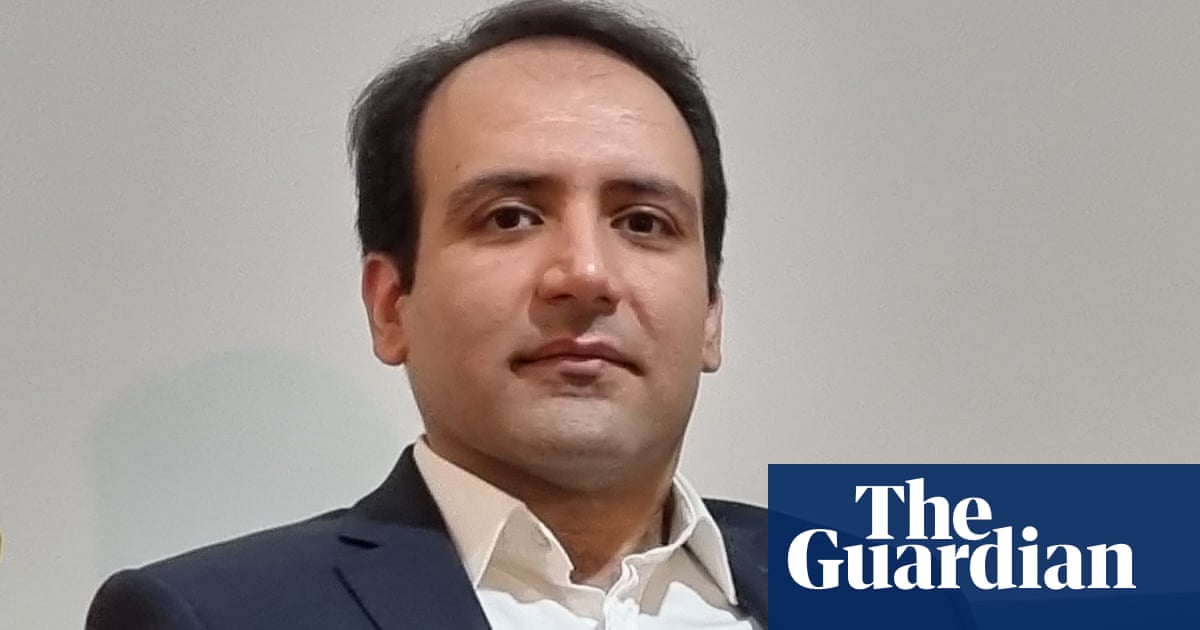
One of Iran’s foremost public intellectuals and critics of the Iranian regime was taken to prison in handcuffs on Saturday to start serving a five-year sentence.
Majid Tavakoli, who has a three-year-old child, was found guilty of spreading propaganda against the state. His dispatch to jail had been deferred for three weeks, but security officials came to take him away on Saturday, the day after another jailed Iranian human rights activist, Narges Mohammadi, was given the Nobel peace prize.
Pictures of him saying goodbye to his wife, Maryam, in handcuffs were circulating on social media. She wrote a brief poem on X, formerly known as Twitter, saying the day had separated her from her heart.
After it became clear that he would have no further right of appeal, Tavakoli agreed to an interview by the Guardian, in which he conceded it was not currently possible to organise political opposition from inside the country. He said: “The prospect of a return to jail makes me fragile and weak, since there is so much love in my family.”
He recalled that during a previous prison term he had not been allowed to make a phone call in four years.
He said he had already served seven years in jail, including one year of solitary confinement.
He criticised the lack of planning in the opposition protests that started after the death of the Kurdish woman Mahsa Amini in police custody.
He said: “Bringing political change is not the task of the people inside Iran, but that of a political force based outside of Iran. The political atmosphere in Iran is heavily manipulated by the government with imprisonment and the removal of intellectual and political forces.
“I urge those outside Iran to start the process of frankly analysing why the broad opposition to the regime has successively failed.” He blamed “an absence of ideas and agents of change”.
“Many who have worked in these areas believe the central issue in Iran has been modernity. The failure to attain modernity in Iran has prevented us from being a country like others following a development path and reaching our desired state.”
He argued Iranian society as a whole had embraced modernity but this had not happened in the realm of politics or the formation of political systems.
He said the diverse Iranian opposition needed to find common ground on a self-critical analysis of the country’s problem or it would be difficult to reach a solution.











